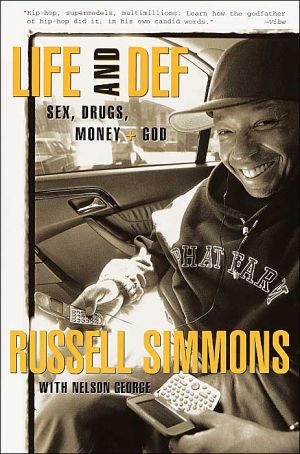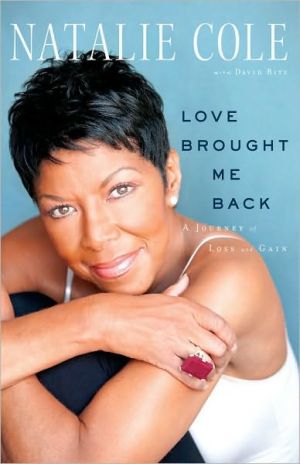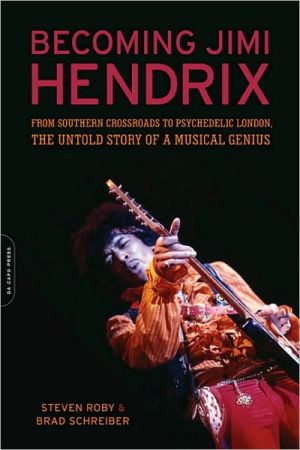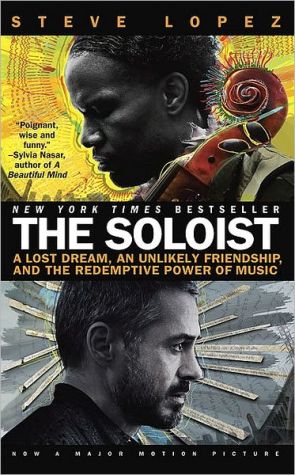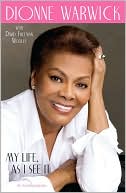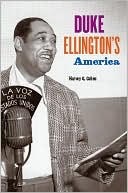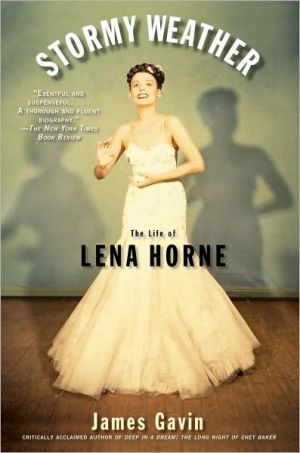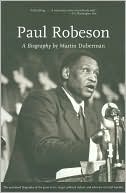Life and Def: Sex, Drugs, Money, and God
Russell Simmons, the original and eternal hip-hop mogul, is one of the most innovative and influential figures in modern American business and culture. When no one outside of inner-city New York had even heard of hip-hop, Simmons saw the seeds of a global force that would change the way people talk, dress, listen to music, and choose the heroes they hang on their walls. Today, he oversees a sprawling, multimillion-dollar empire of culture-defining businesses in everything from music to...
Search in google:
Russell Simmons, the original and eternal hip-hop mogul, is one of the most innovative and influential figures in modern American business and culture.Publishers WeeklyLegendary entrepreneur Simmons's career bio reads like a history of the hip-hop movement, from his first stint as a DJ and promoter in the mid-1970s, through his cofounding of Def Jam Records and groundbreaking 1980s work with Run-DMC, the Beastie Boys and Public Enemy, to his wildly successful cable showcase Def Comedy Jam and his fashion label Phat Farm. But surprisingly, the tone of his memoir, written with accomplished author George (The Death of Rhythm and Blues), is rather flat. Simmons shares tales of his youth in Queens, early New York street-hustling days with DJs like Kurtis Blow, and partying in the Caribbean with Naomi Campbell and Robert De Niro, describing his life as full "of decisions and danger with deep moral and emotional consequences." Long on details and short on self-analysis, the stories blur into one long rise to the top. The book has an "as-told-to" quality, as if George transcribed interviews and added accurate sociological analysis in stilted prose ("It is that contrast between street knowledge and traditional values that frightens mainstream people about hip-hop"). Judging from Simmons's taciturnity about past drug use and sexism, he may have wanted simply to recount his success as a black businessman "all of my business success ties in directly to my internal growth." Still, Simmons's book is required reading for hip-hop fans. 16 pages of b&w photos not seen by PW. (Oct. 9) Forecast: The major media blitz includes tie-in with Phat Farm's 10th anniversary promotions and the $1-million launch of Simmons's new telecommunications company, Rush Communications, as well as promotional support from the BET cable company and Simmons's 360HipHop.com site. Copyright 2001Cahners Business Information.
1\ Cold Gettin' Paid\ There have always been two types of black businesses in this country. First, there are those like Johnson Publications or Essence Communications (or black hair care or cosmetics companies), which cater to black consumers and work that niche for all it's worth. Ebony and Essence, which are institutions in the black community, exist solely to target black consumers, draw revenue predominantly from the ad budgets of white corporations and portray a middle-class black version of American reality.\ Then there's the Motown model. Berry Gordy labeled his company the "Sound of Young America." Gordy was a visionary who saw that black culture, as expressed through the music his company created, was just as viable and important culturally--and commercially--as anything in this country. Motown sold black pop music, written and performed by blacks, for consumption by all Americans regardless of their color.\ My philosophy takes a little from both, yet differs fundamentally from them. Unlike Ebony or Essence, my audience is not limited by race. My core audience, my hip-hop audience, is black and white, Asian and Hispanic--anyone who totally identifies with and lives in the culture. Those are my peeps.\ And unlike Motown, I don't believe in catering to the so-called mainstream by altering your look or slang or music. I see hip-hop culture as the new American mainstream. We don't change for you; you adapt to us. That's what has made Def Jam records, Def Comedy Jam and Phat Farm, to name a few of my ventures, commercially successful and influential. And that is the central philosophy that has driven my career.\ WHAT IS HIP-HOP?\ I guess I should start with my definition of hip-hop. To me, hip-hop is modern mainstream young urban American culture. I know there's a lot of ideas there, but hip-hop's impact is as broad as that description suggests. Like rock and roll, blues and jazz, hip-hop is primarily a musical form. But unlike those forms of black American music, hip-hop is more expansive in the ways it manifests itself, and as a result, its impact is wider. The ideas of hip-hop are spread not just through music, but in fashion, movies, television, advertising, dancing, slang and attitude.\ The beauty of hip-hop, and a key to its longevity, is that within the culture there is a lot of flexibility. So Run-D.M.C. and A Tribe Called Quest and N.W.A and Mary J. Blige and Luther Campbell and the Beastie Boys can all wear different clothes, use different slang and have a different kind of cultural significance. Yet all are recognizable as being part of hip-hop. I believe hip-hop is an attitude, one that can be nonverbal as well as eloquent. It communicates aspiration and frustration, community and aggression, creativity and street reality, style and substance. It is not rigid, nor is it easy to sum up in one sentence or even one book. Simply put, when you are in a hip-hop environment, you know it; it has a feel that is tangible and cannot be mistaken for anything else.\ Hip-hop culture is, all these years later, closer to its original aesthetics than jazz or blues or rock and roll are to their roots. For example, the originators of rock and roll were black men who wore fly suits, had their hair slick and didn't give a fuck. That describes all those artists in the '50s who laid down the foundation, men who were trying to fight their way out of southern racism and northern poverty. In their time they were regarded as outlaws. They got arrested. They got harassed. They were attacked.\ Eventually mainstream America took over rock and roll and it changed. No longer rock and roll, it became rock. It became hallucinogenic. It became about rebellion for rebellion's sake. It was no longer about drinking and looking fly; it became about taking drugs and wearing dirty jeans. In the '60s and '70s, when this new rock emerged, the old music, and the old musicians, were tossed away. You couldn't tell this new audience that Chuck Berry and Led Zeppelin were the same thing. In one generation you were hot and then you were over.\ Hip-hop, however, has been very consistent in its stance. A couple of years ago Erick Sermon, Redman and Keith Murray recorded the Sugarhill Gang's "Rapper's Delight," the first big rap hit from 1979, and did it exactly like the original. The concepts in that rap record from twenty-odd years ago are still valid. Hip-hop records are still about "I got a fly girl, I'm going to the motel in my new car." They still say, "I'm gonna get flak for being young and street. But I'm still gonna take a bite out of American culture. I'm gonna do it my way and I'm gonna buy everything in Bloomingdale's. I'm not into rebellion for the sake of rebelling. My rebellion has a goal-self-improvement, the ability to acquire all the things normally denied me or to change the way the world speaks, moves, dresses and thinks." So "Rapper's Delight," which basically borrowed rhymes from old-school pioneers, has the same aesthetic as you'd find on almost any Def Jam record today. Then it was gold chains. Now it's platinum Bentleys.\ Which is why there are 40-year-old b-boys. I remember flying to a fight in Vegas and meeting the actor Ving Rhames and his wife. Turned out his brother was a competitor of mine in the old days who used to promote shows by DJ Hollywood and sell thousands of tickets. Ving and I talked about going to the Hotel Diplomat in Times Square, where we did big parties in the days before rap records. But we were also talking about the sound on a new Q-Tip record and how dope he was.\ Ving and a lot of people like him are getting the same thing out of the culture they used to. The music isn't the same. Sometimes the language on the record is different. But it's the same take on American culture.\ In the beginning we ran into a little bit of an obstacle when it came to communicating this urban black and Latino attitude to suburban America. Even after suburbanites began buying the music, they didn't really understand the aesthetic. Now, in the twenty-first century, it's come full circle. Suburbanites purchase hip-hop records in huge numbers, but they also have a deeper understanding of and appreciation for all aspects of the culture. As a result, hip-hop has influenced everything around them. Look at today's rock bands-Limp Bizkit, Kid Rock, Korn. They all have hip-hop running through their veins.\ You know, rock stars used to be notorious for getting into brawls and getting drunk. In the '60s and '70s, when rock still had some guts, people like Mick Jagger and Jimmy Page represented youthful rebellion. They did drugs. They tore up hotel rooms. They made sexually suggestive records. They expressed sympathy for the devil. Now rap stars have taken it all to another level. They carry guns. They use guns. They go to jail. They express a connection to the people still in jail. They express solidarity with the people from their hood-no matter how dangerous it was or how much money they've made. They confront cops, politicians, other rappers and even themselves on record and off. They do all the things rock stars used to do and they do even more dangerous, outrageous things. Today a kid knows a rock star acts out because he's rebelling against his parents. A rap star, however, is doing it because he has a serious reason-discrimination, personal anger or ghetto conditions. And on top of all that, a rap star wants to make money and enjoy success, and is fearless in doing it. The result is the kind of attitude of authentic rebellion that rock was always supposed to have.\ This stance has drawn criticism, but attacks on hip-hop have always been great for the culture. In fact, I personally want to thank Bob Dole, William Bennett and the rest of those right-wingers for reminding kids that hip-hop is theirs. When adults say, "Oh, fuck, don't listen to rap!" they just reinforce young people's commitment to it. Even some 40-year-olds who grew up on rap and who know that the messages in rap can be scary try to tell their kids, "Don't listen to it," which is like asking kids to buy it. People who grew up on rock now look at it and say, "Aw, it's okay," because it's not scary at all. Once that happens, kids don't want it and it becomes a museum piece.\ On the other hand, black kids, and the core white, Asian and Latino kids into rap, don't listen to it just to piss off their parents. That kind of rebellion's irrelevant to them. They listen because it expresses what they're thinking about. Punk, new wave, alternative-most of it came and went. Today there's no Clash. There's no Nirvana. Right now rock can't fuck with rap-unless it adopts rap-because the culture is so raw and honest.\ When rap came along in the late '70s, there was something synthetic about black pop music. The most popular black music of the time was R&B made simple for white people to dance to; they called it disco. Disco actually started within the gay dance community. They had a creative little thing happening, and then it crossed over to the mainstream. The record industry adopted it because it helped soften the edges of black music. But ultimately disco didn't address the issues rap has. Even though rap was born in the ghetto, it addresses issues a lot of kids across America (and the world) are dealing with-anger, alienation, hypocrisy, sex, drugs. All the basics.\ Kids of all colors, all over the world, instinctively seek to change the world. They usually have this desire because they don't want to buy into the dominant values of the mainstream. Rappers want to change the world to suit their vision and to create a place for themselves in it. So kids can find a way into hip-hop by staying true to their instinct toward rebellion and change.\ Hip-hop has, in fact, changed the world. It has taken something from the American ghetto and made it global. It has become the creative touchstone for edgy, progressive and aggressive youth culture around the world. That's why my business is bigger than it's ever been. And, I believe, we're far from through.\ From the Hardcover edition.
\ From Barnes & NobleRussell Simmons, founder of the original hip-hop record label, Def Jam, presides over a media empire that includes the Phat Farm clothing label and an advertising agency. In this straight-talking autobiography, Simmons candidly describes his childhood in Queens, where he and his brother Run (of the legendary hip-hop group Run-D.M.C.) were initiated into New York's vibrant street culture. Simmons, who has worked with everyone from the Beastie Boys to DMX, spices his memoir with behind-the-scenes tales of hip-hop legends, as well as offering advice for wannabe entrepreneurs.\ \ \ \ \ Publishers WeeklyLegendary entrepreneur Simmons's career bio reads like a history of the hip-hop movement, from his first stint as a DJ and promoter in the mid-1970s, through his cofounding of Def Jam Records and groundbreaking 1980s work with Run-DMC, the Beastie Boys and Public Enemy, to his wildly successful cable showcase Def Comedy Jam and his fashion label Phat Farm. But surprisingly, the tone of his memoir, written with accomplished author George (The Death of Rhythm and Blues), is rather flat. Simmons shares tales of his youth in Queens, early New York street-hustling days with DJs like Kurtis Blow, and partying in the Caribbean with Naomi Campbell and Robert De Niro, describing his life as full "of decisions and danger with deep moral and emotional consequences." Long on details and short on self-analysis, the stories blur into one long rise to the top. The book has an "as-told-to" quality, as if George transcribed interviews and added accurate sociological analysis in stilted prose ("It is that contrast between street knowledge and traditional values that frightens mainstream people about hip-hop"). Judging from Simmons's taciturnity about past drug use and sexism, he may have wanted simply to recount his success as a black businessman "all of my business success ties in directly to my internal growth." Still, Simmons's book is required reading for hip-hop fans. 16 pages of b&w photos not seen by PW. (Oct. 9) Forecast: The major media blitz includes tie-in with Phat Farm's 10th anniversary promotions and the $1-million launch of Simmons's new telecommunications company, Rush Communications, as well as promotional support from the BET cable company and Simmons's 360HipHop.com site. Copyright 2001Cahners Business Information.\ \ \ Library JournalDrug use and supermodel encounters fill much of hip hop impresario Simmons's mediocre autobiography basically a retelling of the American Dream. A native of Hollis, Queens, and a one-time gang member, Simmons overcame racial, economic, social, and critical barriers to achieve quantum success: a history-changing rap record label, Def Jam (cofounded with Rick Rubin); a clothing label, Phat Farm; an artist management company, Rush Productions; and a model wife. What keeps the story line from sagging is a pulsing hip hop soundtrack. Readers will get some behind-the-scenes glimpses into the formative and recent years of hip hop, now the most dominant form of youth culture. Simmons relates, for example, hanging out with rapper Notorious B.I.G. hours before he was murdered. Unfortunately, the book, written with the help of George (Hip Hop America), shifts from pop-culture diary to business tome, presenting, in less appealing prose, theories on how to achieve monetary success. Recommended for metropolitan libraries and anywhere with a sizable hip hop fan base. Robert Morast, "Argus Leader Daily," Sioux Falls, SD Copyright 2001 Cahners Business Information.\ \ \ \ \ School Library JournalAdult/High School-With the help of prolific author George, Simmons discusses his experiences as a manager and producer of hip-hop music, comedy, and fashions. His real name is Hollis Crew, the big brother of former old-school rapper Run of Run-D.M.C. Their father wrote rap lyrics for Run-D.M.C. early in their career. Although this memoir is unlikely to hold teens' interest from cover to cover, it can be a useful source for researching the history and influence of hip-hop culture. It provides information about other rap stars as well. Readers can also gain valuable insights into the business aspects of the entertainment industry from Simmons's explanations of how he developed film projects, Def Comedy Jam, Phat Farm fashions, and the Internet company 360 Hip-Hop. The author gives examples of how major record companies such as Sony exploit small independent companies such as Def Jam. He also details how specific individuals-including rap artists-have betrayed him in business deals. At the end of the memoir, Simmons summarizes his formula for success in five succinct lessons. A telling look at the unglamorous side of the industry.-Joyce Fay Fletcher, Rippon Middle School, Prince William County, VA Copyright 2002 Cahners Business Information.\ \
